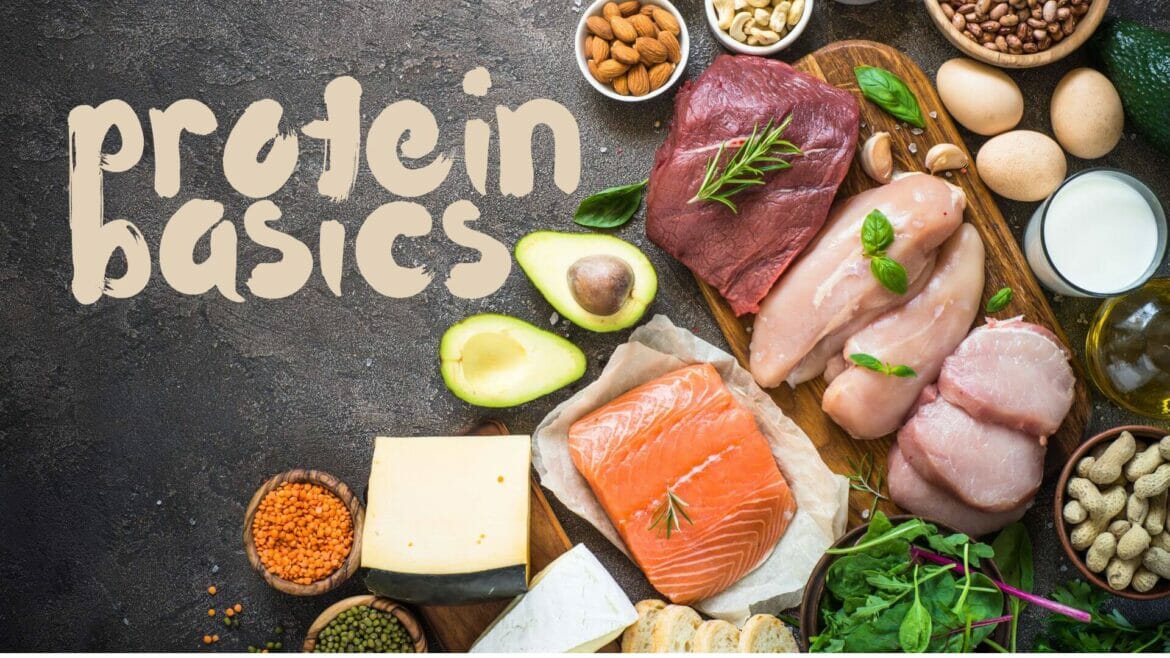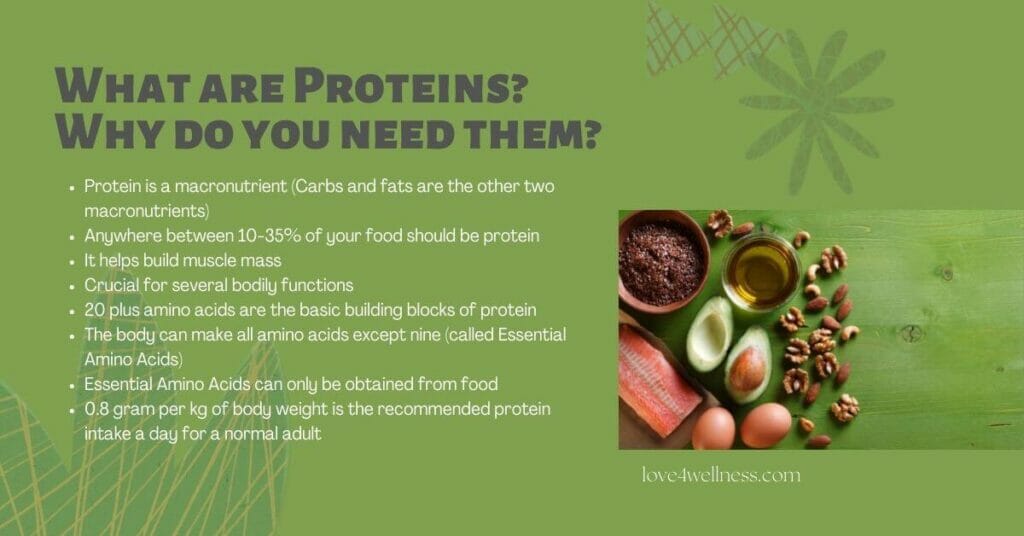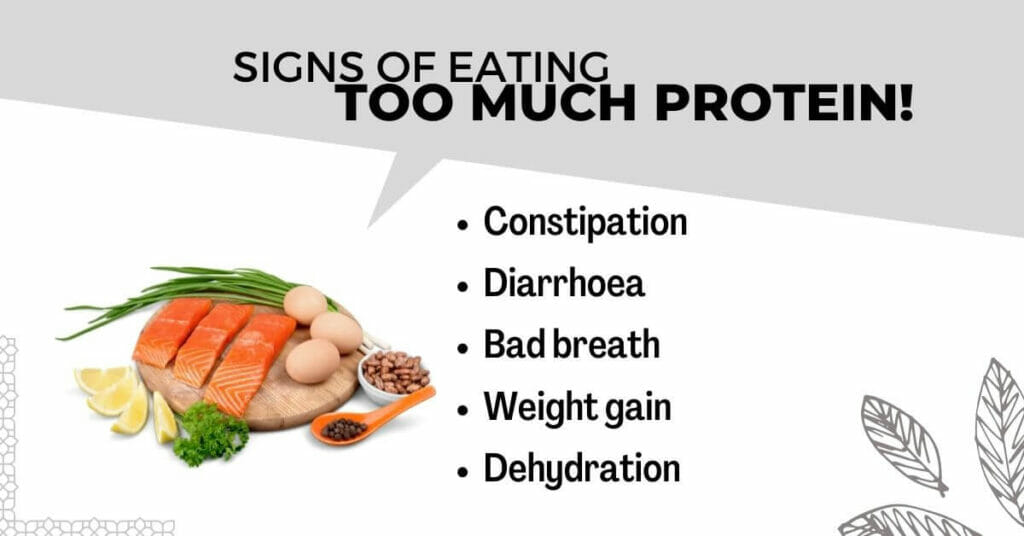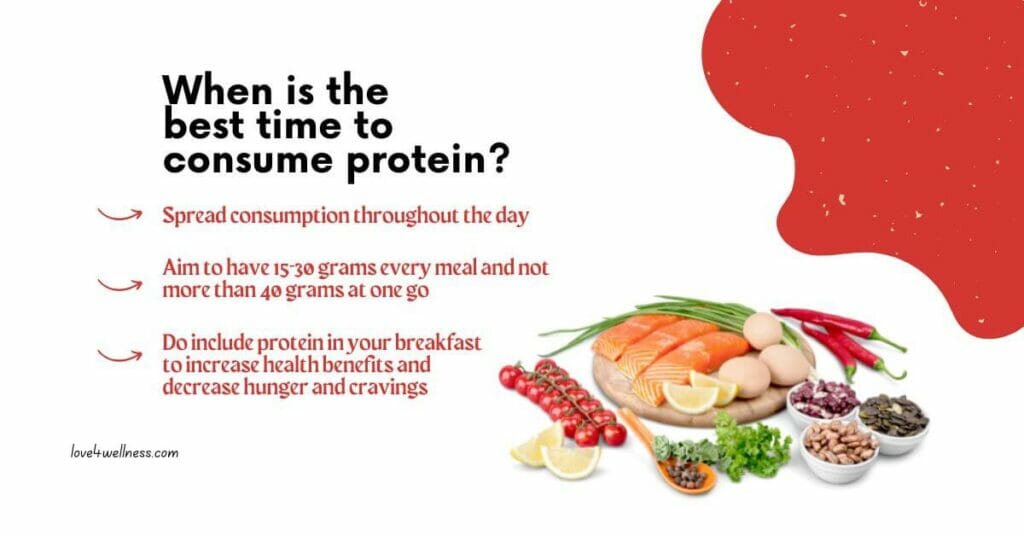Have you ever wondered why protein is an essential nutrient? From cells to muscles, bones, hair, and skin, protein is present in almost every body part. Without proteins, your body will be unable to function properly. But, it is also unlikely to get protein-deficient. For a normal, healthy person, a regular diet consisting of less processed foods will satisfy the protein needs. Would you like to know a bit more about proteins? Here are some of the important things you may be interested to know about proteins.
What is protein?
Protein is a macronutrient, meaning we need it in large quantities. The other macronutrients are carbohydrates and fats.
Protein is found in virtually every part of the body, including hair, muscle, bone, skin, etc. In addition, the various enzymes needed for bodily actions and haemoglobin that transports oxygen throughout our body are made of proteins.
Getting protein from your food
About 20 plus amino acids make up proteins that your body needs. Our body can synthesise proteins, except for nine amino acids called Essential Amino Acids. The body cannot produce these, so we need to get them from food.
Nearly all food groups contain proteins, but the quality of protein differs. Some foods contain all nine essential amino acids. Such foods are complete protein sources.
Generally, animal foods are better protein sources because animal sources contain all essential amino acids, while plant-based sources may lack one or more of them.
However, choosing a variety of foods every single meal will ensure you get complete protein. For example, rice with lentils and beans is a good meal, giving you all essential amino acids.
A normal adult would need 0.8 grams of protein per kilogram of body weight a day. For example, if you weigh 70 kg, you can consume 56 grams of protein daily.
The minimum recommended intake is just indicative of a sedentary adult’s needs. The requirement can vary with gender, age, and activities.
For example, active adults, pregnant women, and growing children would need more than 0.8grams/kg/day.
Recommended protein intake per day
- The recommended amount of protein for an adult is a minimum of 0.8 grams/kg/day, assuming the person is sedentary.
- The minimum recommended protein intake is enough to prevent deficiency. However, the need may vary depending on the activity levels, muscle mass, overall health, etc.
- For active people such as athletes and those who train regularly, a protein intake of 1.2 – 2 grams/kilogram of body weight/day is recommended depending on the activities.
- For girls 3-15 years of age, it is 0.9 grams/kg/day. And for boys between 3-18 years, it is 0.9 grams/kg/day.
- Pregnant and breastfeeding women may take 1.1 – 1.3 grams/kg/day of protein
- Older adults need significantly higher protein, about 1.1 – 1.3 grams/kg/day.
- People recovering from injuries may need more protein to enable faster recovery.
Another point worth noting is not to take too much protein at one go. It is common for people to consume high protein foods at every meal when trying to build muscles.
However, it is observed that having more than 40 grams of protein in any meal did not have any additional benefit. This is because your body can effectively use 30 grams of protein; part of the surplus is stored as fat, and your kidneys excrete the rest. So, a high-protein diet may overwork your kidneys.
Hence, you may limit your protein intake to 15 – 30 grams during one meal.
You Might Also Like:
- Pregnancy Superfoods Expecting Mothers Should Include in Their Diet
- How Do You Ensure Dietary Needs Of Your Toddler?
Signs of eating too much protein
Protein is an essential nutrient, no doubt. Getting too much protein from your diet is unlikely. However, some people consume protein bars, powder, and protein shakes, which may give your body too high a protein.
If you suspect taking more protein than your body needs, watch for the following signs. Consult your dietitian and evaluate your body needs.
When to consume protein?
As one of the essential nutrients, it would be best to include protein in all three meals of a day.
Particularly, adding 15-20% of protein during breakfast has many potential benefits, including decreasing your hunger and cravings during the day. Studies show that those who skipped breakfast or consumed little protein during breakfast tend to have a larger appetite during lunch, leading to weight gain, blood sugar spikes, etc.
So, spread out your protein intake, including less processed, heart-healthy, wholesome protein sources.
Six quick ways to add protein to your meal
Many food groups, including plant-based foods, contain proteins, and you are unlikely to be protein-deficient. However, if you want some quick ways to include protein in your meal, here are six delicious ways.
- A bowl of greek yogurt
- A bowl of assorted nuts
- Add cooked beans to soups, salads, or any dish
- Choose quinoa over rice or pasta
- Boiled egg
- Add chia, hemp, and flaxseed to yogurt or smoothies
So, that’s a quick wrap of essentials on the essential nutrient proteins.
Images: canva.com




